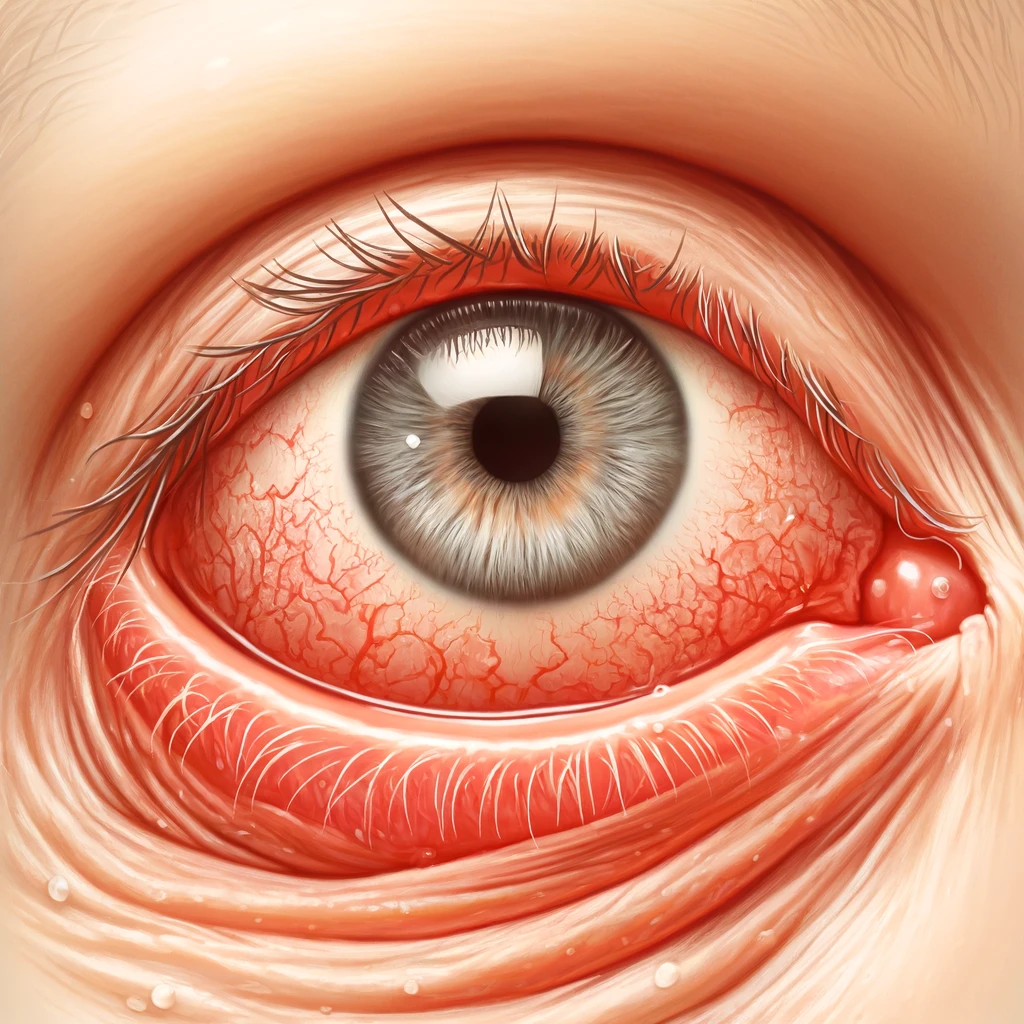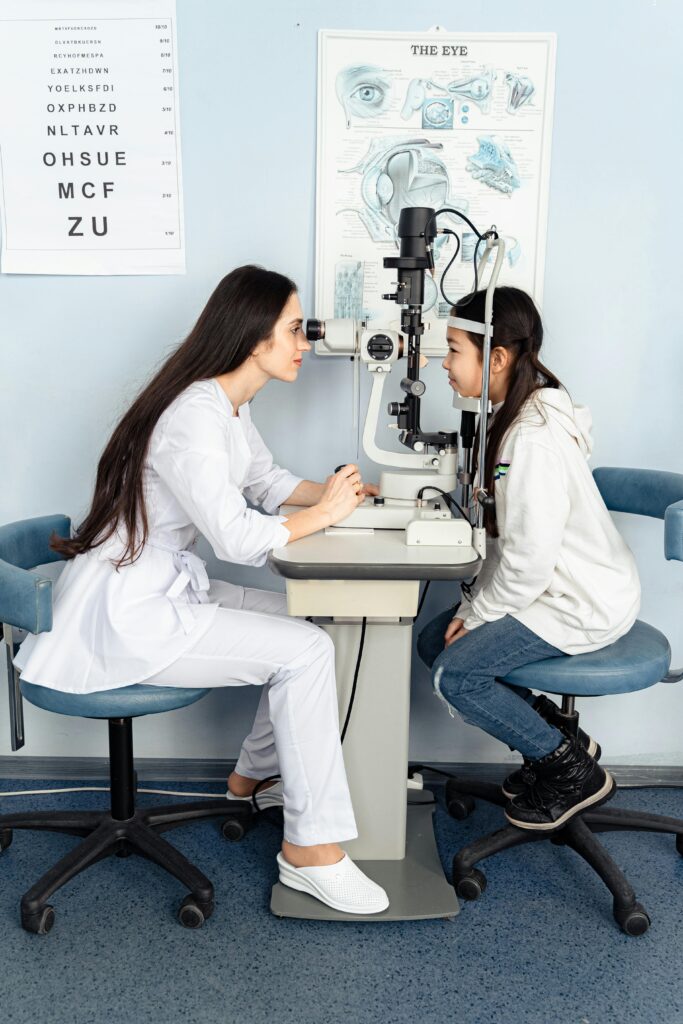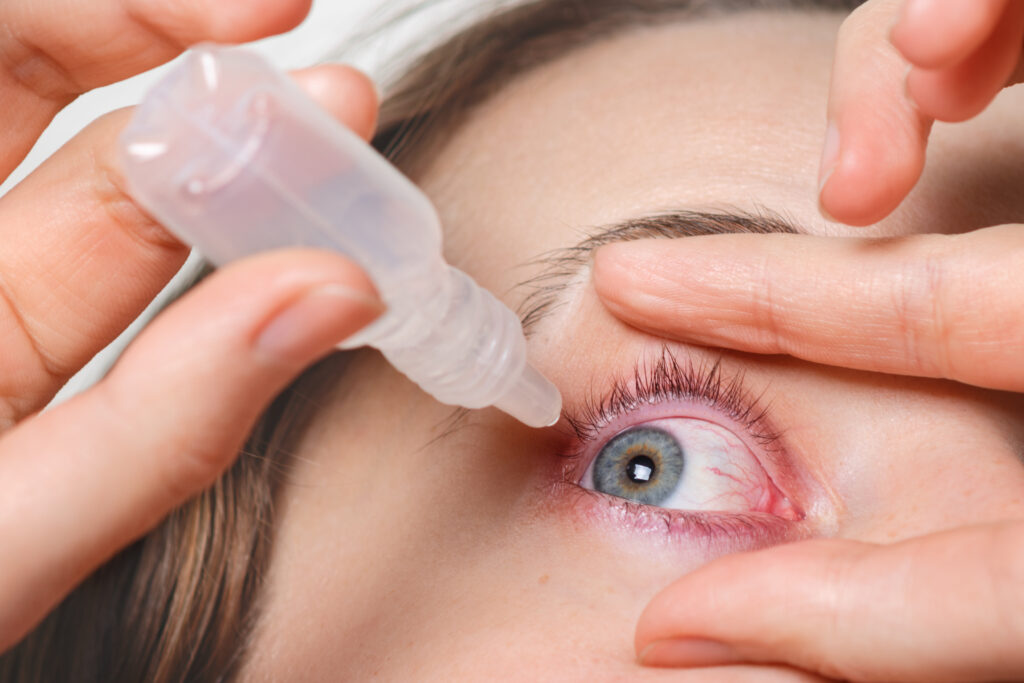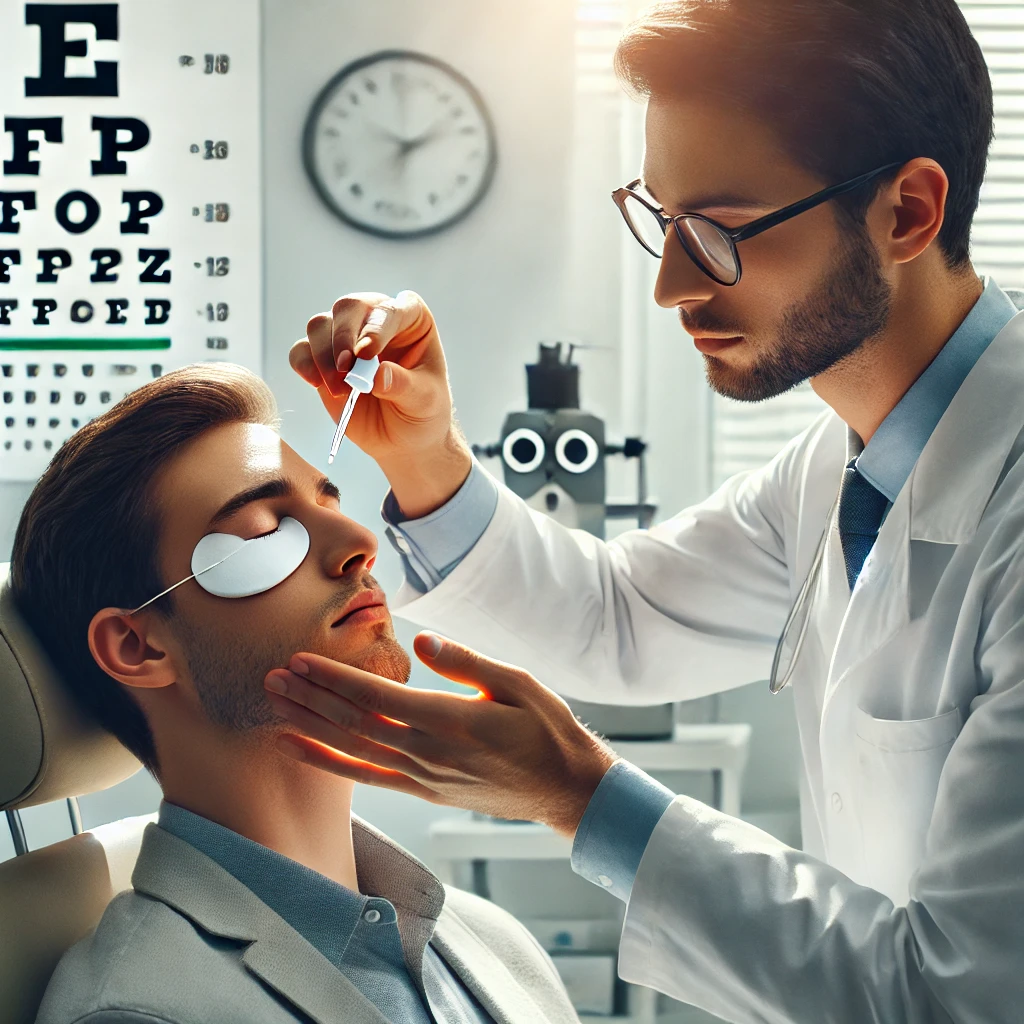Start by introducing why eye health is crucial for daily comfort and vision. Explain that while dry eye vs allergy eye might feel similar, they have distinct causes, symptoms, and treatments. Mention that understanding these differences is essential to finding effective relief.

What is Dry Eye? Causes, Symptoms, and Who is at Risk
Define dry eye as a condition where the eyes do not produce enough tears or the right type of tears to stay lubricated. List common causes, like age, screen time, certain medications, and conditions like Sjögren’s syndrome.
Discuss symptoms such as burning, scratchiness, and a gritty feeling. Note that people over 50, contact lens wearers, and those who spend hours on screens are more likely to experience dry eye.
What is Allergy Eye? Common Triggers and Symptom
Allergy eye, also known as allergic conjunctivitis, is typically triggered by allergens like pollen, dust, or pet dander. Explain that it is an immune response that affects the eyes.
List symptoms like redness, itching, tearing, and swelling. Emphasize that allergy eye usually has a sudden onset during specific seasons or exposure to allergens.
Dry Eye vs Allergy Eye: Key Differences in Causes
Break down the primary differences between dry eye and allergy eye in terms of cause. Dry eye is related to tear production and quality, while allergy eye results from an immune response to allergens. Use “Dry Eye vs Allergy Eye” as the focus keyword naturally, explaining these root causes clearly
Recognizing the Symptoms: How to Tell if It’s Dry Eye or an Allergic Reaction
Explain how to differentiate between the symptoms. For example, itching is more common with allergy eye, while a gritty feeling is a telltale sign of dry eye. Include that both can cause redness, but watery discharge is more common with allergy eye.
What Triggers Dry Eye vs Allergy Eye?
Discuss common triggers for both conditions. For dry eye, mention air conditioning, wind, screen time, and even certain medications. For allergy eye, talk about exposure to allergens such as pollen or pet hair. Help readers understand the scenarios that might cause their specific eye discomfort.
How Environmental Factors Affect Dry Eye vs Allergy Eye
Describe how environmental conditions, like humidity, pollution, and seasonal changes, can exacerbate both dry eye and allergy eye.
For instance, cold, dry air can worsen dry eye symptoms, while springtime pollen can aggravate allergy eye. Make it relatable by mentioning situations like spending time outdoors in different seasons.
Can Dry Eye and Allergy Eye Coexist? When Conditions Overlap
Explain that some people might experience both conditions simultaneously, especially during allergy season.
Describe the signs of overlapping symptoms and how they can complicate diagnosis and treatment. Using the focus keyword, describe how managing “Dry Eye vs Allergy Eye” together requires a tailored approach.
Diagnosis: How Eye Doctors Identify Dry Eye vs Allergy Eye
Describe common diagnostic tests, such as the Schirmer test for dry eye or slit-lamp examination for allergy eye. Emphasize the importance of seeing an eye doctor to get an accurate diagnosis, especially when symptoms are persistent or unclear.
Detail lifestyle adjustments, like using a humidifier, taking screen breaks, or avoiding smoky environments. Mention medical treatments such as artificial tears, prescription eye drops, or even punctal plugs for severe cases. Reiterate that treating dry eye involves both at-home care and, if needed, professional help.

Treatment Options for Dry Eye:
Detail lifestyle adjustments, like using a humidifier, taking screen breaks, or avoiding smoky environments. Mention medical treatments such as artificial tears, prescription eye drops, or even punctal plugs for severe cases. Reiterate that treating dry eye involves both at-home care and, if needed, professional help.
Allergy Eye Relief: Best Practices and Medications
Talk about options like avoiding allergens, using cold compresses, and taking antihistamines. Include prescription eye drops like antihistamine drops, which can help soothe allergy eye. Emphasize that managing allergy eye often involves both preventive measures and targeted medications.

Lifestyle Tips for Managing Both Dry Eye and Allergy Eye
Provide actionable tips for day-to-day management, such as wearing sunglasses outdoors, reducing exposure to irritants, and incorporating breaks during screen time. Suggest keeping eyes hydrated by drinking enough water and using moisturizing drops as needed.
Natural Remedies for Dry Eye and Allergy Eye: What Works and What Doesn’t
List popular remedies like omega-3 supplements, warm compresses, and herbal teas. Discuss how these can help with dry eye by promoting tear production.
For allergy eye, mention that rinsing with saline solution can provide temporary relief. Address myths, like using essential oils around the eyes, which can sometimes do more harm than good.
Can Eye Drops Help? Choosing the Right Drops for Dry Eye vs Allergy Eye
Guide readers on choosing the right type of eye drops. Explain that artificial tears work well for dry eye, while antihistamine drops are effective for allergy eye. Mention that some eye drops can worsen symptoms if not used correctly, like using preservative-containing drops for chronic dry eye.
Prevention Tips for Dry Eye and Allergy Eye:
Offer preventive tips, like maintaining a clean environment, using an air purifier, and avoiding rubbing the eyes. Describe how simple actions, like wearing goggles while swimming or using allergen-free bedding, can make a difference in eye comfort.
Signs You Might Need Professional Help
List signs that indicate a need for professional care, such as persistent discomfort, pain, blurred vision, or discharge. Stress that chronic symptoms should not be ignored and that an eye doctor can provide treatments that go beyond over-the-counter solutions
Managing Dry Eye vs Allergy Eye Over Time
Discuss the long-term perspective on managing both conditions. Mention that dry eye may require consistent lifestyle adjustments, while allergy eye management might involve seasonal care and preventive measures. Remind readers that with the right approach, both conditions can be managed for better quality of life.

Choosing the Right Path to Relief for Your Eyes
Summarize the main points, reinforcing that understanding the root causes, symptoms, and treatments of “dry eye vs allergy eye” is crucial for finding lasting relief. Encourage readers to consult an eye care professional if they’re unsure about their symptoms or need a personalized treatment plan.
What’s the main difference between dry eye and allergy eye?
Dry eye is due to insufficient tears, while allergy eye is a reaction to allergens.
How can I tell if I have dry eye vs allergy eye?
Dry eye feels gritty and dry; allergy eye is itchy and watery.
Can you have both dry eye and allergy eye?
Yes, it’s possible to experience both, especially during allergy season.
What are the best treatments for dry eye vs allergy eye?
Dry eye is treated with lubricating drops; allergy eye needs antihistamine drops and allergen avoidance.
When should I see a doctor for dry eye or allergy eye?
See a doctor if symptoms persist despite treatment or if vision is affected.

Pingback: Eye Lash Glue Allergy 5 Essential Tips Prevent Reactions